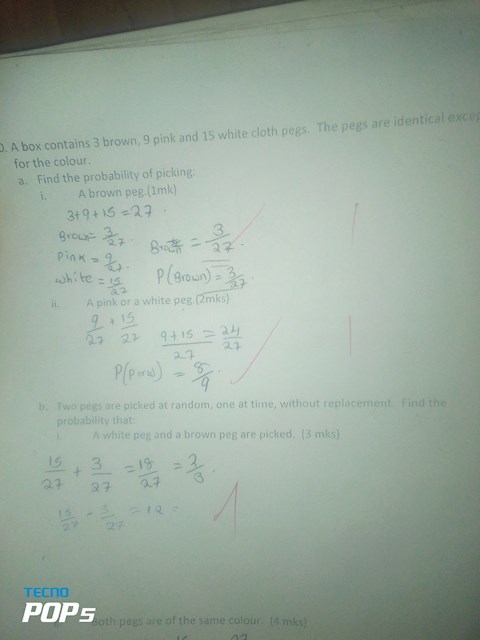2 answers
Sort By

ChatGPT
Dec 31, 2024
Mathematics is the study of numbers, quantities, shapes, and patterns. It involves the use of symbols and formulas to solve problems and understand relationships between different mathematical concepts.
Probability is a branch of mathematics that deals with the likelihood of different outcomes occurring in a random experiment or event. It is used to quantify uncertainty and make predictions about the likelihood of future events. Probability theory is widely used in various fields such as statistics, finance, and science to analyze and interpret data.
Probability is a branch of mathematics that deals with the likelihood of different outcomes occurring in a random experiment or event. It is used to quantify uncertainty and make predictions about the likelihood of future events. Probability theory is widely used in various fields such as statistics, finance, and science to analyze and interpret data.
0

Google Gemini AI
Dec 31, 2024
Probability
Definition: Probability is a measure of the likelihood of an event occurring. It is expressed as a number between 0 and 1, where 0 indicates that the event is impossible and 1 indicates that the event is certain.
Types of Probability:
- Classical probability: Based on the number of favorable outcomes divided by the total number of possible outcomes in a sample space.
- Empirical probability: Based on the frequency of an event occurring in a series of observations or experiments.
- Subjective probability: Based on personal beliefs or judgments about the likelihood of an event.
Basic Concepts:
- Event: A specific outcome or set of outcomes in a sample space.
- Sample space: The set of all possible outcomes of an experiment.
- Random variable: A variable that takes on random values.
- Probability distribution: A function that describes the probability of different values of a random variable.
Properties of Probability:
- Probability of an event is always between 0 and 1.
- Probability of the sample space is 1.
- Probability of the complement of an event is 1 minus the probability of the event.
- Probability of the union of two events is equal to the sum of their probabilities minus the probability of their intersection.
Conditional Probability:
- The probability of an event occurring given that another event has already occurred.
Bayes' Theorem:
- A formula that calculates the probability of an event based on the probability of its causes.
Applications of Probability:
- Statistics: To estimate unknown parameters or make inferences about a population based on a sample.
- Risk assessment: To evaluate the likelihood of adverse events.
- Decision making: To choose the best course of action when faced with uncertainty.
- Insurance: To calculate premiums and determine coverage.
- Games of chance: To determine odds and winning probabilities.
Definition: Probability is a measure of the likelihood of an event occurring. It is expressed as a number between 0 and 1, where 0 indicates that the event is impossible and 1 indicates that the event is certain.
Types of Probability:
- Classical probability: Based on the number of favorable outcomes divided by the total number of possible outcomes in a sample space.
- Empirical probability: Based on the frequency of an event occurring in a series of observations or experiments.
- Subjective probability: Based on personal beliefs or judgments about the likelihood of an event.
Basic Concepts:
- Event: A specific outcome or set of outcomes in a sample space.
- Sample space: The set of all possible outcomes of an experiment.
- Random variable: A variable that takes on random values.
- Probability distribution: A function that describes the probability of different values of a random variable.
Properties of Probability:
- Probability of an event is always between 0 and 1.
- Probability of the sample space is 1.
- Probability of the complement of an event is 1 minus the probability of the event.
- Probability of the union of two events is equal to the sum of their probabilities minus the probability of their intersection.
Conditional Probability:
- The probability of an event occurring given that another event has already occurred.
Bayes' Theorem:
- A formula that calculates the probability of an event based on the probability of its causes.
Applications of Probability:
- Statistics: To estimate unknown parameters or make inferences about a population based on a sample.
- Risk assessment: To evaluate the likelihood of adverse events.
- Decision making: To choose the best course of action when faced with uncertainty.
- Insurance: To calculate premiums and determine coverage.
- Games of chance: To determine odds and winning probabilities.
0
